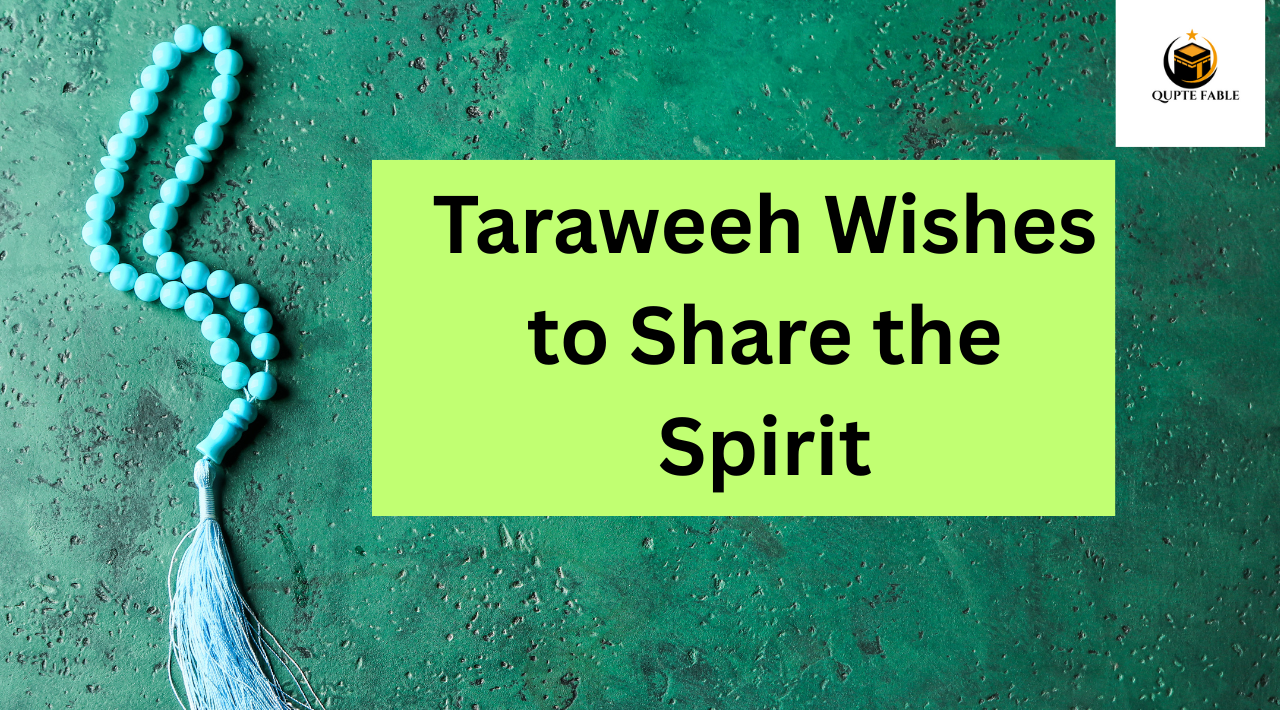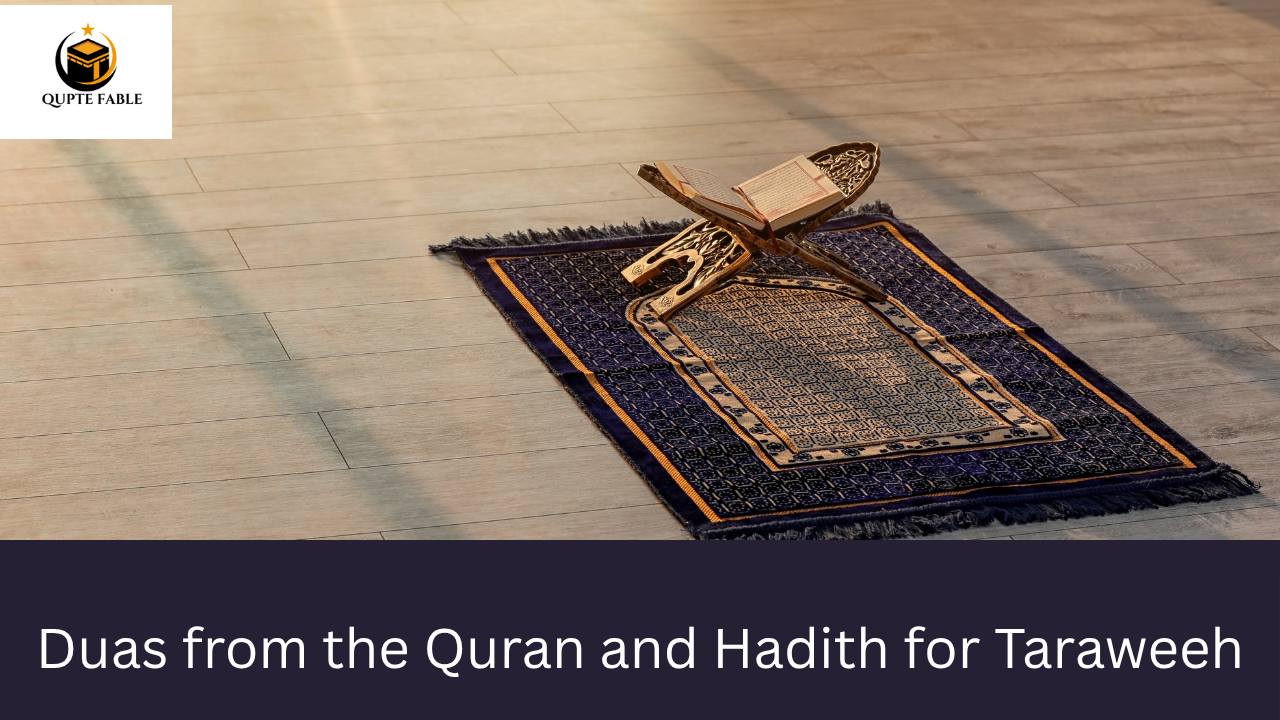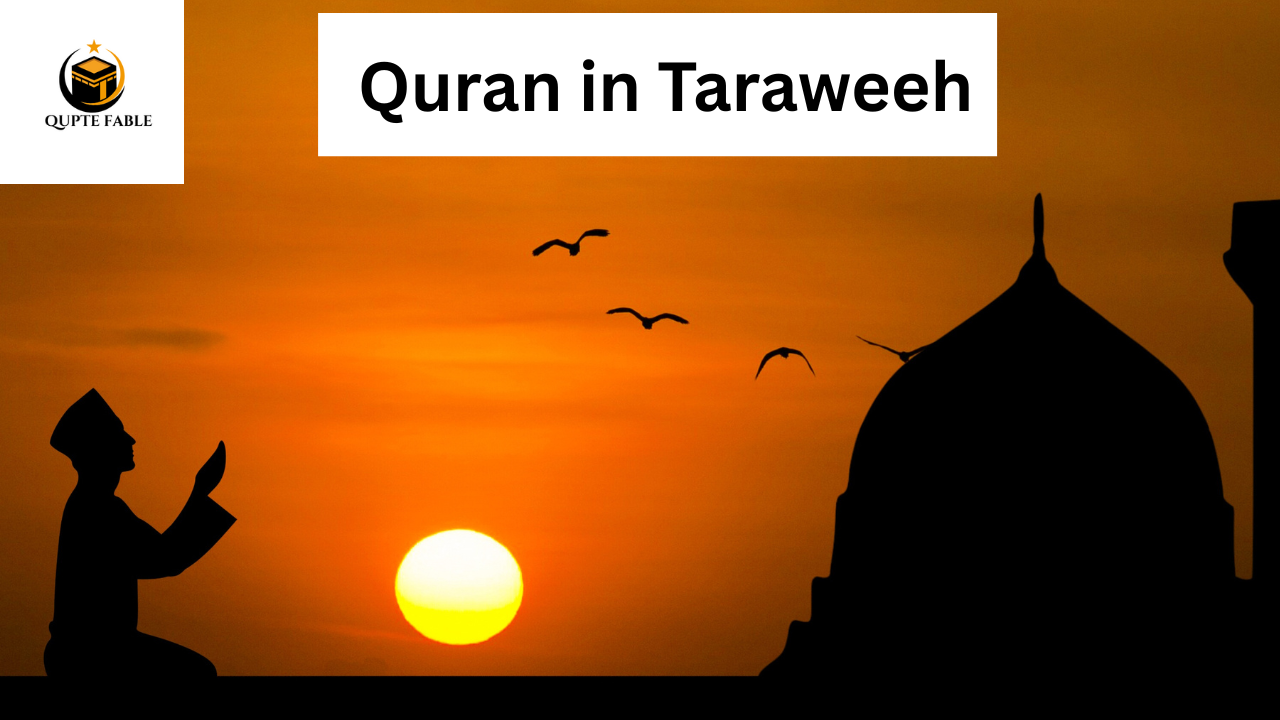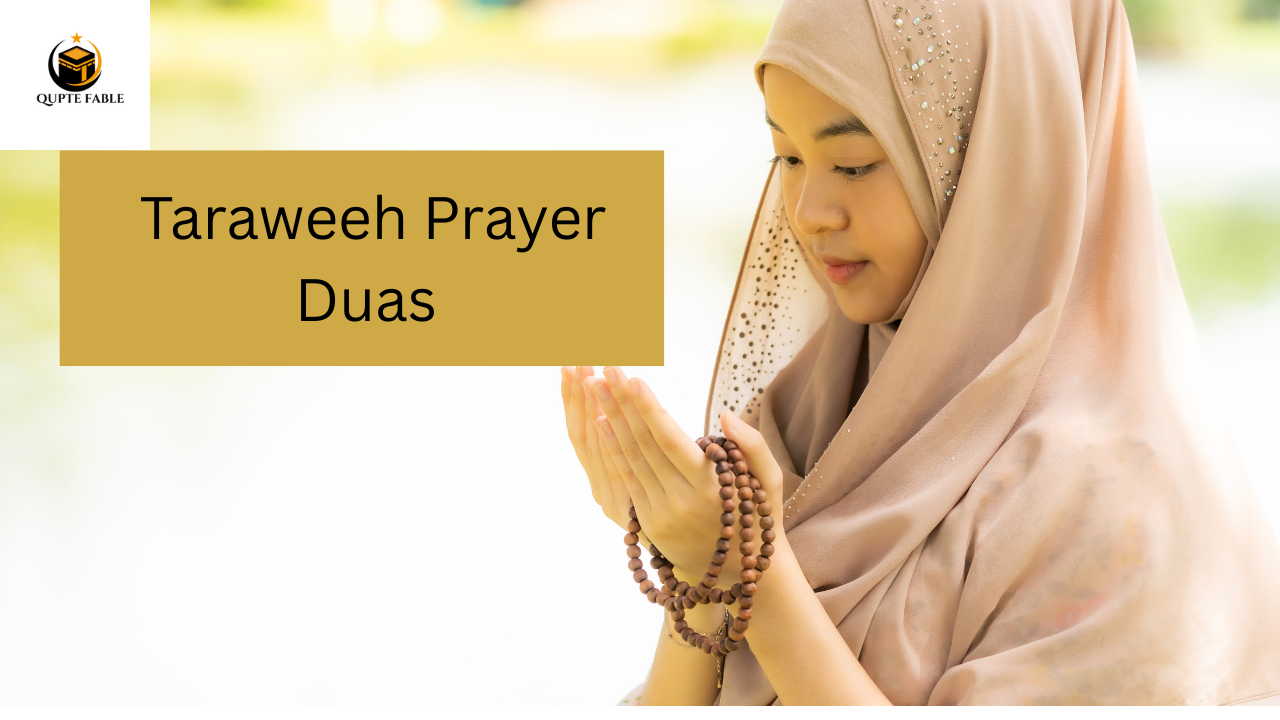araweeh is one of the most beautiful and spiritually uplifting prayers offered during the blessed month of Ramadan. Performed after the Isha prayer, Taraweeh gathers hearts in devotion as the Qur’an is recited and believers stand together in humility and hope. These peaceful night prayers create a powerful atmosphere of reflection, forgiveness, and closeness to Allah. Sharing heartfelt duas and warm wishes during Taraweeh is a meaningful way to spread light, encouragement, and spiritual connection among family and friends.
As we embrace the serenity of these sacred nights, exchanging Taraweeh duas and wishes helps strengthen bonds and remind one another of faith, patience, and gratitude. Whether through a thoughtful message, a prayer for forgiveness, or a wish for acceptance of good deeds, these words carry the spirit of Ramadan into every heart. May every Taraweeh prayer bring peace to our souls, blessings to our homes, and acceptance of our sincere supplications.
Taraweeh Wishes to Share the Spirit
- May your Taraweeh nights glow with peace, light, and prayers that rise to the heavens, healing hearts and refreshing souls.
Alternative: Let every raka’ah in Taraweeh bring light to your soul and blessings to your life this Ramadan. - As we stand in prayer tonight, may our hearts align with the mercy of Allah, finding peace, purpose, and forgiveness.
Alternative: Taraweeh connects the heart to Allah’s mercy—may your every whisper in sujood be heard and answered kindly. - May each Taraweeh bring you closer to the Qur’an, and may your spirit glow with faith, love, and tranquility.
Alternative: In every verse you hear tonight, may your soul find warmth, your mind clarity, and your heart closeness to Allah. - Let Taraweeh uplift your spirit, soften your heart, and open the gates of mercy that carry you toward lasting guidance.
Alternative: Each raka’ah is a key—may it unlock doors of barakah, healing, and hope deep within you this Ramadan. - May your footsteps toward the masjid tonight be rewarded like stars, shining on your path until the final Day.
Alternative: Walking to Taraweeh is walking to light—may every step purify your sins and illuminate your soul forever.
Duas for Taraweeh Nights
- O Allah, guide my heart to love You deeply, and make my Taraweeh a ladder toward peace and eternal joy.
Alternative: Ya Rabb, grant me sincerity in Taraweeh, so I taste the sweetness of closeness and rise in ranks with You. - Ya Allah, forgive every sin whispered in sujood, and grant me a heart humbled by Your light in every raka’ah.
Alternative: Let my whispers in prostration echo in the heavens, carrying pleas of mercy and hopes of forgiveness tonight. - O Lord of Mercy, strengthen my limbs in standing, my heart in believing, and my soul in trusting Your plan.
Alternative: May You bless every effort in Taraweeh, increasing me in patience, light, and nearness to Your boundless love. - Ya Rabb, bless our nights with acceptance, our hearts with certainty, and our prayers with deep meaning and answered hope.
Alternative: Let this Taraweeh night be a turning point—where prayers become reality and You are pleased with me, O Allah. - O Allah, every tear I shed in prostration tonight—accept it, and make it a shield from Your punishment, Ameen.
Alternative: Accept every silent cry, every trembling voice, every yearning heart that bows to You this Taraweeh.

Duas from the Quran and Hadith for Taraweeh
- “Our Lord, grant us from Yourself mercy and prepare for us from our affair right guidance.” (Qur’an 18:10)
Alternative: Rabbana, pour Your mercy upon us and guide our affairs rightly—especially in this blessed Taraweeh. - “O Turner of hearts, keep my heart firm upon Your religion.” (Hadith, Tirmidhi)
Alternative: Ya Muqallib al-qulub, strengthen my faith in these Taraweeh nights when hearts turn toward light. - “Our Lord, accept [this] from us. Indeed You are the Hearing, the Knowing.” (Qur’an 2:127)
Alternative: Rabbana taqabbal minna—may every raka’ah in Taraweeh rise to You in purity and love. - “Indeed, I have wronged myself, so forgive me.” (Qur’an 28:16)
Alternative: O Allah, forgive me for what I did knowingly and unknowingly—make Taraweeh my path to redemption. - “Whoever stands [in prayer] in Ramadan out of faith and hope in reward, will have past sins forgiven.” (Hadith, Bukhari)
Alternative: O Allah, grant me the sincerity to pray Taraweeh with full heart, and erase my sins as promised.
From the Quran.
- “And seek help through patience and prayer; and indeed, it is difficult except for the humbly submissive [to Allah].” (2:45)
Alternative: O Allah, give me strength in prayer and make my Taraweeh a refuge where my heart finds patience and peace. - “Indeed, the righteous will be among gardens and springs.” (Qur’an 51:15)
Alternative: May my Taraweeh be a path that leads to Jannah, with gardens of mercy and springs of joy. - “Indeed, in the remembrance of Allah do hearts find rest.” (Qur’an 13:28)
Alternative: As I remember You in Taraweeh, let my heart find stillness no dunya can offer. - “And establish prayer for My remembrance.” (Qur’an 20:14)
Alternative: Let every rak’ah tonight be a moment of Your remembrance—engraved with sincerity and love for You alone. - “Indeed, Allah is with those who fear Him and those who are doers of good.” (Qur’an 16:128)
Alternative: In every Taraweeh, help me fear You with love and act in ways pleasing to You, O Most Merciful.
From the Hadith
- “The best prayer after the obligatory ones is the night prayer.” (Muslim)
Alternative: Let every Taraweeh I offer bring me closer to the best of rewards, wrapped in the silence of the night. - “Pray as you have seen me pray.” (Bukhari)
Alternative: O Allah, help me perfect my Taraweeh as Your Messenger ﷺ prayed—with humility, love, and deep focus. - “The closest a servant comes to his Lord is during prostration.” (Muslim)
Alternative: In every sujood during Taraweeh, let me feel the sweetness of being closest to You, O Allah. - “When Ramadan begins, the gates of Paradise are opened.” (Bukhari)
Alternative: Ya Allah, let my Taraweeh prayers be the key that opens those gates of Jannah for me. - “Whoever prays at night in Ramadan out of sincere faith… his past sins will be forgiven.” (Bukhari)
Alternative: O Lord, reward my sincerity and effort in Taraweeh with complete forgiveness and mercy.

Reminders for the Heart
Taraweeh is not just prayer—it’s a conversation with Allah, where hearts speak louder than tongues in silence and surrender.
Alternative: Let your Taraweeh be a sacred meeting, where burdens melt and souls are mended by Divine presence.
Every night in Ramadan is a chance to restart. Let Taraweeh refresh your soul and remove the dust of heedlessness.
Alternative: Taraweeh is your nightly cleanse—wash away doubts and sins in the river of Allah’s remembrance.
In the stillness of night, when the world sleeps, Taraweeh stands as a testimony of love between you and Allah.
Alternative: When others rest, you rise—may your silent steps toward Taraweeh echo in eternity with blessings.
Forgiveness descends every night—don’t leave Taraweeh without asking for your portion of mercy, hope, and light.
Alternative: In every ruku’ and sujood, plant seeds of your hereafter. Water them with sincere tears and faithful intentions.
The Quran was revealed in Ramadan—Taraweeh is your nightly journey through its light, wisdom, and timeless healing.
Alternative: Let the recitation tonight enter your heart like moonlight—quiet, powerful, and transforming.

1. Praying Taraweeh in Congregation (Jama’ah)
One of the most well-known Sunnahs of Taraweeh is offering it in congregation. The Prophet (peace be upon him) initially led the Taraweeh prayer in the mosque for a few nights, and then refrained from doing so continuously to prevent it from becoming obligatory on his followers. However, this established the Sunnah of praying Taraweeh in congregation during Ramadan.
According to a Hadith in Bukhari and Muslim:
“Whoever stands for prayer during Ramadan out of faith and seeking reward, his previous sins will be forgiven.” (Bukhari, Muslim)
During the time of Caliph Umar ibn al-Khattab (may Allah be pleased with him), he observed people praying in small groups and decided to unite them under one imam,Ubayy ibn Ka’b. This standardisation was praised by scholars and continued throughout Islamic history.
Benefits of Praying in Congregation:
- Builds community unity
- Increases motivation and consistency
- Amplifies reward due to shared worship
It is recommended to pray Taraweeh in the masjid, but if unable, praying at home—especially with family—can also be a source of reward.
Reciting the Quran in Order (Tarteeb)
Another important Sunnah of Taraweeh is the systematic recitation of the Qur’an. The Prophet (peace be upon him) recited the Qur’an in the order it was revealed to him, and he reviewed it with Angel Jibreel each Ramadan.
The concept of tarteeb, or sequential recitation, is deeply rooted in the prophetic tradition. Taraweeh offers a unique opportunity to hear and reflect upon the entirety of the Qur’an in its proper order, reinforcing its themes, stories, and laws.
Why Reciting in Order Matters:
- Maintains the coherence and structure of divine revelation
- Enhances understanding of the Qur’an’s message
- Fosters deeper spiritual reflection as the storylines unfold sequentially
Even if one is praying at home or alone, it is preferable to follow this order when possible, especially when reading longer surahs.

Completing the Quran in Taraweeh (Khatm al-Quran)
Completing the Qur’an during Taraweeh is a Sunnah that reflects both devotion and discipline. It is narrated that the Prophet (peace be upon him) would recite the Qur’an with Angel Jibreel every Ramadan, and in his final year, he reviewed it twice. This has led scholars to conclude the desirability of completing the Qur’an in the month.
In many mosques around the world, imams plan the Taraweeh schedule in a way that allows them to complete the full recitation by the 29th or 30th night of Ramadan. This act not only revives the prophetic practice but also allows the community to hear and engage with the entire Qur’an within one month.
Benefits of Khatm al-Qur’an in Taraweeh:
- Encourages connection with all 114 surahs of the Qur’an
- Provides spiritual nourishment through diverse verses and themes
- Helps the imam and listeners maintain consistency and focus
Although this is a beautiful Sunnah, it is not obligatory. Those who cannot complete the full Qur’an may recite shorter surahs while maintaining sincerity and devotion.
Praying Eight or Twenty Rakaat
There is a scholarly difference of opinion on the number of raka’ahs (units) in Taraweeh. The Prophet (peace be upon him) was reported to have prayed eight raka’ahs, and this is considered Sunnah by some scholars. However, during the time of Caliph Umar ibn Al-Khattab (RA), the companions prayed twenty raka’ahs in congregation, and this became widely practiced.
Hadiths supporting both views exist, and scholars agree that the most important element is khushu’ (humility) and quality of prayer, not quantity.
Summary of Opinions:
- 8 Raka’ahs: Based on Hadith of Aisha (RA) – Sahih Bukhari
- 20 Raka’ahs: Based on Umar’s implementation and consensus of companions
Both options are valid Sunnahs. It is better to choose what allows you to be more present and consistent in prayer.
Benefits of Flexibility:
- Makes Taraweeh accessible to everyone
- Encourages focus and not rushing through the prayer
- Allows communities to adapt based on their needs
Ending with Witr Prayer
The final Sunnah related to Taraweeh is ending with the Witr prayer, which is considered the concluding prayer of the night. The Prophet (peace be upon him) said:
“Make Witr your last prayer at night.” (Bukhari, Muslim)
Witr can be offered as one, three, five, or more odd-numbered units. During Taraweeh in congregation, it is typically performed after the completion of all raka’ahs.
Witr holds immense spiritual significance, and the Prophet ﷺ never left it—even during travel. It is a time when sincere duas are accepted, and the heart is most connected.
Sunnahs of Witr During Ramadan:
- Raising hands in qunoot and making heartfelt dua
- Pausing briefly before beginning Witr
- Using concise and meaningful supplications from the Sunnah
Virtues of Witr:
- Marks the end of nightly prayer with submission
- Brings the night to a spiritually fulfilling close
- Symbolizes the Oneness of Allah, as “witr” means “odd”
Practical Tips to Uphold These Sunnahs:
- Plan Ahead – If you want to complete the Qur’an, divide it into 29 portions and track your progress daily.
- Attend the Masjid – Praying in congregation even a few nights a week can help you stay consistent.
- Listen Actively – If you’re not leading, focus on listening to the Qur’an with reflection and attention.
- Make Sincere Duas – Use sujood and Witr for personal supplication, asking Allah for forgiveness, guidance, and mercy.
- Stay Present – Avoid distractions, phones, and idle talk in the masjid; remember the sacredness of these nights.
Final Words
- As Ramadan ends, may your Taraweeh become your lifelong companion—reminding you how the soul finds peace through standing for Allah.
Alternative: Let the spirit of Taraweeh continue even after Ramadan—prayer is not seasonal, it’s eternal. - If you missed a night, don’t miss the next. Allah loves the one who returns, again and again, with sincerity.
Alternative: Fall, but rise again. Even one night of Taraweeh is better than none—walk back, and Allah welcomes you. - Taraweeh is not a burden—it’s a gift. A whisper from Allah calling your soul back to light, prayer, and purpose.
Alternative: Don’t see it as long—see it as love. A nightly invitation to draw near the King of Kings. - Carry the lessons of Taraweeh beyond Ramadan—discipline, devotion, and connection. Let the light stay within you always.
Alternative: Ramadan ends, but the heart that Taraweeh shaped can keep glowing forever—if you guard it with faith. - Ya Allah, make Taraweeh the beginning of a lifetime of closeness to You—filled with prayers, patience, and profound love.
Alternative: May Taraweeh be our training ground for a life built around You, O Most Loving, Most Near.
Conclusion
Taraweeh is a golden opportunity in Ramadan to attain closeness to Allah, cleanse the soul, and elevate one’s spiritual status. By following these five Sunnahs—praying in congregation, reciting in order, completing the Quran, observing the correct number of rakaat, and ending with Witr—you align your practice with that of the Prophet ﷺ and the early Muslims. Whether you pray at the mosque or home, with many raka’ahs or few, the essence lies in sincerity, reflection, and love for Allah.
please read the related post:349+ Best Islamic Quotes on Friendship From Quran & Sunnah.

